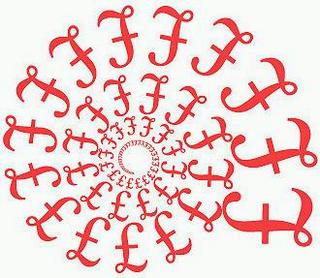Real interest rates mean great returns on the Hungarian forint
Published:
14 April 2004 y., Wednesday
Around the globe, people are looking at Hungary’s real interest rates. With consumer prices up 6.6% year-on-year in January and short-term interest rates close to 12%, there is no other emerging market that offers a better real return on your money.
Massive capital inflows confirm that there is indeed an opportunity. Hot money has pushed up the Hungarian forint to less than Ft 250 per euro. This was the level at which the forint was traded before a flow of adverse macroeconomic data and confused central bank statements drove the currency to its bottom level of over Ft 270 per euro during the second half of 2003.
Is it still worthwhile changing your humble savings into Hungarian forints to benefit from these high interest rates? The answer depends on the exchange rate at which you will convert your money back into your home currency at the end of the day.
Let us suppose you have Ђ100,000 to invest. You can invest it in T-bills from EU countries, giving you a return of around 2%. Alternatively, you change your Ђ100,000 into forints at a rate of Ft 248 and buy Hungarian T-bills for around Ft 24.8 million. This will render you a yield to maturity just below 12%, so that at the end of the year you will own around Ft 27 million.
Provided that you can change your money back into euros at the same rate, you would increase the yield on your investment sixfold compared to investing in euro T-bills! (from 2% to 12%). The problem is that you don’t know the future exchange rate. It is possible, however, to sell the whole amount on the futures market, but only at a rate of Ft 263. Hedging would cost you as much as you would gain from the interest rate differential. Alas, no free lunch.
More interesting returns are available if you’re willing to take a bet on the Hungarian forint. If you’re confident that the forint will stay firm below Ft 263 per euro until the end of December, there is no need to hedge your forint exposure. Is there any reason to be confident about this?
There are, in my opinion, two reasons that make it unlikely that the National Bank of Hungary (MNB) will let the forint depreciate again below a level of around Ft 263 per euro. The first reason is obvious, the second reason more complex in nature.
Šaltinis:
bbj.hu
Copying, publishing, announcing any information from the News.lt portal without written permission of News.lt editorial office is prohibited.
The most popular articles
 “Banking Market in the Baltics 2009-2011, CEE Banking Brief” report recently presented by Intelace Research states that, despite the current economic recession, Estonia, Latvia and Lithuania are still among the most advanced banking markets in Central and Eastern Europe (CEE).
more »
“Banking Market in the Baltics 2009-2011, CEE Banking Brief” report recently presented by Intelace Research states that, despite the current economic recession, Estonia, Latvia and Lithuania are still among the most advanced banking markets in Central and Eastern Europe (CEE).
more »
 According to the unaudited data for three quarters 2009, AB Bank SNORAS earned LTL 4.1 million profit. Although the inter-banking market of the country fixed the banks’ asset decrease (- 4.6 per cent) since the beginning of the year, the assets of Bank SNORAS grew by LTL 249.3 million and were by 4 per cent higher than at the beginning of 2009.
more »
According to the unaudited data for three quarters 2009, AB Bank SNORAS earned LTL 4.1 million profit. Although the inter-banking market of the country fixed the banks’ asset decrease (- 4.6 per cent) since the beginning of the year, the assets of Bank SNORAS grew by LTL 249.3 million and were by 4 per cent higher than at the beginning of 2009.
more »
 Taking into account changes on domestic money markets AB DnB NORD Bankas, a member of international financial group shall change individual and corporate time deposit rates from November 5.
more »
Taking into account changes on domestic money markets AB DnB NORD Bankas, a member of international financial group shall change individual and corporate time deposit rates from November 5.
more »
 FL Technics, the leading aircraft maintenance, repair and overhaul (MRO) provider in Eastern Europe, has signed contracts with Air Italy and Air Slovakia for Boeing 737-300 aircraft base maintenance in Lithuania.
more »
FL Technics, the leading aircraft maintenance, repair and overhaul (MRO) provider in Eastern Europe, has signed contracts with Air Italy and Air Slovakia for Boeing 737-300 aircraft base maintenance in Lithuania.
more »
 Thales UK’s headquarters site in Weybridge has recently held a Halloween charity coffee morning, raising more than £280 for Marie Curie Cancer Care.
more »
Thales UK’s headquarters site in Weybridge has recently held a Halloween charity coffee morning, raising more than £280 for Marie Curie Cancer Care.
more »
 New SaaS-Based Vulnerability-Scanning Solution Is Latest Addition to Company’s Application Security Program.
more »
New SaaS-Based Vulnerability-Scanning Solution Is Latest Addition to Company’s Application Security Program.
more »
 Since 31 October 2009, only LTL 0.99 fee for accepting payments will be applied to clients while making payments for various services (utility fees, communication services, etc.) in all subdivisions of Bank SNORAS.
more »
Since 31 October 2009, only LTL 0.99 fee for accepting payments will be applied to clients while making payments for various services (utility fees, communication services, etc.) in all subdivisions of Bank SNORAS.
more »
 AB DnB NORD Bankas, the country‘s leader in investment products market, offers a new possibility for the clients to make repurchase deals (repo deals) in the bank’s newly installed on-line trading platform.
more »
AB DnB NORD Bankas, the country‘s leader in investment products market, offers a new possibility for the clients to make repurchase deals (repo deals) in the bank’s newly installed on-line trading platform.
more »
 The benefits of the integration of eastern Europe’s financial systems into the world economy outweigh the costs that have been highlighted during the global economic crisis, the EBRD has concluded in a new report.
more »
The benefits of the integration of eastern Europe’s financial systems into the world economy outweigh the costs that have been highlighted during the global economic crisis, the EBRD has concluded in a new report.
more »
 On 22 October 2009, following the favourable opinion expressed in September by the Committee for Fisheries and Aquaculture, the Commission adopted a Regulation establishing the implementing rules for the 2008 Regulation to prevent, deter and eliminate illegal, unreported and unregulated (IUU) fishing.
more »
On 22 October 2009, following the favourable opinion expressed in September by the Committee for Fisheries and Aquaculture, the Commission adopted a Regulation establishing the implementing rules for the 2008 Regulation to prevent, deter and eliminate illegal, unreported and unregulated (IUU) fishing.
more »